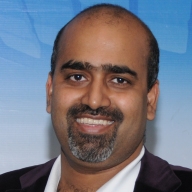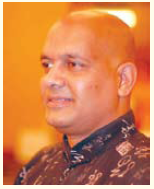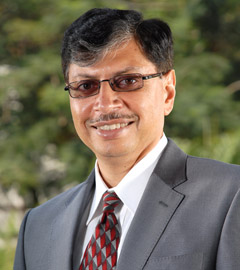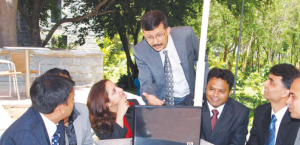Author Archives: managementnextblog
How to build synergy between HR and Knowledge Management
How can KM help HR? And, how can corporate HR improve knowledge capacity in an organisation. How can HR and KM metrics be aligned? These and other issues were discussed at the May 2011 meeting of the Bangalore K-Community. Panelists from Nokia, Oracle, Unisys and Wipro addressed a number of interesting issues on the topic By Madanmohan Rao.
HR professionals in Indian organisations are facing serious challenges of scale, growth, cost-pressures, competition and diversity. Knowledge retention is a key challenge due to high churn, and competitive pressures mean new employees have to be brought up to speed extra fast.
How can KM help HR? And, how can corporate HR improve knowledge capacity in an organisation – via KM workshops awards and formal KRAs for knowledge work, for instance? How can HR and KM metrics be aligned? Externally, how are Indian colleges and universities responding to the KM and innovation needs of Indian companies, and how can enterprise HR and KM partner with them in this regard?
Knowledge sharing comes naturally to digital natives Students by nature tend to share their work and discuss it with their peers; when they join the workforce this sharing nature is amplified by social media. However, many of their innovative behaviours and risk-taking attitudes tend to get stamped out by the uniformity of corporate life. Hence, knowledge managers should pay special attention to tapping the sincerity and curiosity of digital natives.
Smart CKOs should be right at the head table with the CEO, aligning KM activities with organisational strategy
Use metrics, make big money
By using right metrics, entrepreneurs can make more money over the long term than they can ever imagine, says Michelangelo Celli, an expert in CEO Vision Marketing, with Pittsburg-based Cornucopia Group, in a chat with Benedict Paramanand while he was in Bangalore recently
You speak about private business CEOs beating Wall Street hands down
We have designed measurement metrics that are designed to help business owners realize that you can make money many times over than on Wall Street or your local stock market. Our CEO Vision Marketing method offers CEOs a “systems way of thinking” for a 360-degree view of their B2B marketing and sales operations.
The thinking that marketing should lead to sales and branding to profits – leads to a lot of confusion in the company. Clarity comes when everything should lead to more sales
Instead of trying to earn 8 percent on Wall Street, B2B private businesses selling expensive products and services can earn a staggering amount of money if they are disciplined and marketing oriented. Your business is your largest financial asset which you need to leverage.
Most business owners don’t even know that personal wealth is the end game. They spend 30 years inside their business and are more or less penniless. Some put money away privately, but the final sum only amounts to what they would have anyway working for someone else and making a salary.
The marketing function can be measured as accurately as your finance function
Why Executive MBAs are a big draw
A positive business environment, after the nasty recession, is encouraging hundreds of mid-career Indian executives to risk their jobs to do an executive MBA. Find out what is driving them to it and what is in store for them once they complete it.
Executive MBA is becoming a hot property in India today even as the MBA appears to be losing glamour. This is evident in the growing number of B-Schools and other colleges offering a mid-career education break to executives who believe it can fast-track their career and open up leadership positions.
Mid-career professionals, who joined work after their professional courses, especially with technical domains, have always felt the need to acquire an MBA. More than the urge to learn new managerial skills, they wouldn’t like to be left behind in the corporate rat race by those who come with a technical plus MBA degrees. Never mind that these double degree holders would have forgotten what their technical degree taught them and come ready to become managers.
ManagementNext spoke to a few executive MBA students at the Indian Institute of Management, Bangalore’s Executive Post Graduate Program (EPGP), to get a flair of what went through their minds before chucking their jobs and shelling out Why Executive MBAs are a big draw Students of the latest IIMB EPGP batch at the IIMB campus 20 ManagamentNext | Double Issue – June-July 2011 their own money (doesn’t come cheap) and do the program.
Acquiring skills is your own responsibility!

Sandeep Dhar is currently CEO at Tesco HSC in Bangalore. He has over 20 years of experience working with leading global organisations and has worked across different verticals from retail banking and IT Consulting to Business Process Management across Asia, Europe and North America. Sandeep has worked with Sapient, as the Managing Director of their India operations, at Mphasis-EDS, ABN AMRO Bank and Citibank.
Most successful business leaders have at least one unusual interest. In Sandeep Dhar’s case, it’s a fascination with Asian religion and philosophy. He was drawn to it while working in many Asian capitals that have rich cultural heritage.
|





